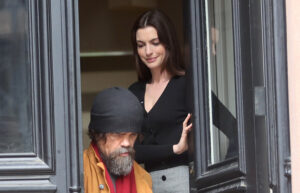
She Came To Me
The destinies of two families intertwine in Brooklyn thanks to the relationship between their teenage children. The parents of Julian, tender and rational, are the psychiatrist Patricia and the theater composer Steven, an opera genius who is however suffering from a creative block. Tereza’s are Magdalena, a Polish woman who cleans Patricia’s house, and the meticulous stenographer Trey, obsessed with respecting the rules and historical reenactment events. In the middle there are tensions, accidents and the tugboat captained by Katrina, who suffers from an addiction to romantic stories.
What a pleasure to rediscover the originality of the pen of Rebecca Miller, literary author and screenwriter who over the years has signed several films as director (Angela, The Secret Life of Mrs Lee), with the latest work of fiction, Maggie’s Plan, dating back almost ten years ago now.
A time long enough to allow us to freshly rediscover his ability to tell the unusual and the surreal through small details of the characters, here otherwise immersed in a semi-realistic and very inflated context such as the bourgeois/high-class life of New York families.
Yet not even one of the dramatic or characterization “beats” in She Came to Me feels like it has already been seen, rather taking the contours of the fairy tale (thanks to the Romeo and Juliet style structure whose underlying feeling is always taken seriously) or of the witty existential satire. There is a metafictional dimension in the torments of Steven, a paralyzed author in search of a story who is guided by the dog towards a muse as unlikely as it is effective. The opera style that made him famous is contemporary, funny, torn from reality, in ways that get him into trouble and that sublimate a latent romanticism. Dinklage plays him with an expressionist style, abandoning himself to feeling in an acting phase that has already seen him grappling with Cyrano.
While the adults are full of neuroses (Anne Hathaway’s psychiatrist doesn’t seem entirely focused, but delivers a hilarious climactic scene on the phobia of kreplachs), Miller reverses the balance and makes the kids an emotionally and psychologically stable couple, ready even big decisions thanks to the warmth of love and a splash of cold statistics. They are, perhaps, the true “addicted to romance” (as in the title of the original song written by Bruce Springsteen for the film), with all due respect to Marisa Tomei, who finds an excellent “transversal” role and under the captain’s uniform is always ready to turn on the attraction even if it shouldn’t.
There is also Joanna Kulig (the protagonist of Cold War), star-like eyes kept at bay in the role of a pragmatic woman, perhaps the only one among all the characters not to have received gifts from life, and an unbearably Brian d’Arcy James abiding by the rules. Around him, and here lies the chaotic beauty of Miller’s screenplay, everyone knows the value of compromise, whether it is with ourselves or with the passions we cannot give up.








